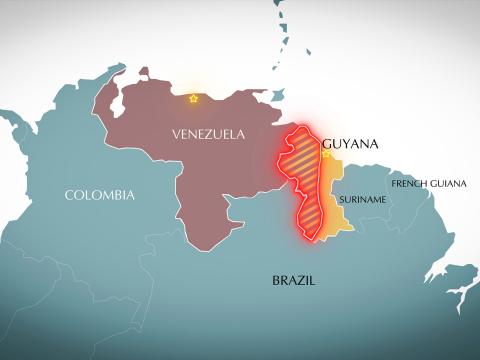Disruptive By Design: Disrupting Iran’s Economic Domain
Last year’s national security strategy indicated that Iran is the world’s leading sponsor of terrorism.
Operational environments can be analyzed using a tool known by the acronym PMESII-PT, which identifies political, military, economic, social, information, infrastructure, physical environment and time variables. Lately, the economic domain has experienced significant disruptions throughout the U.S. Central Command area of responsibility, particularly Iran.
Last year’s national security strategy indicated that Iran is the world’s leading sponsor of terrorism.
Indeed, Iranian agents and Iranian-supported terrorist groups have waged successful cyber attacks against the United States on universities, companies and government agencies. The critical infrastructure, including agriculture, financial services, transportation and energy, is susceptible to cyber, physical and electromagnetic attacks. U.S. critical infrastructure remains at risk from adversarial nation-states as well as from terrorist groups and cyber criminals harbored by Iran and others.
The United States continues to build defensible government networks even as we actively confront Tehran, in part through economic means. Economic sanctions are a significant aspect of Iran’s operational environment. The country continues nuclear weapons program pursuits despite international agreements to remove economic sanctions if it stops.
Ideally, economic sanctions and other measures will prompt a less hostile stance on Iran’s part, decrease terrorist activity and support, deter Iranian aggression in the cyber realm and improve regional stability. Part of the global economic system’s success comes from the United States and partners continuing fair and reciprocal trade practices to eliminate trade barriers. Some economic measures against Iran are more effective than others. Trade partners and international institutions must do more to resolve imbalances while we defend against Iranian aggression with sanctions, investments and military intervention.
To turn up the heat on Iran, the United States should increase counterterrorism and cybersecurity cooperation with European allies. Meanwhile, we could entice Russia to curtail backing for Iran’s weaponry and force-support needs. To gain Russia’s cooperation, the U.S. Air Force could facilitate discussions and provide a stabilizing physical presence, as national leaders progress with diplomatic actions and international agreements.
Economics also rear their head as the United States works to avoid Iranian threats to impede free passage through the Bab el-Mandeb Strait, a strategic ship traffic lane to and from the Suez Canal. The United States, the European Union and other states should participate in and protect fair and reciprocal trade practices to eliminate trade barriers. We will continue leveraging options to address violent extremist organizations, such as ISIS, and to limit economic risks to ourselves and to our international partners.
The United States is collaborating with its partners to neutralize and nullify Iran’s nuclear activities and to help partners obtain missile defenses. We, along with our allies and partners, work to deter and disrupt Iranian-supported terrorist organizations. Our efforts to disrupt Iran’s economic environment will ultimately bring stability to the region, which will support security and prosperity throughout that area and the world.
Jennifer A. Miller is a financial management analyst supporting the Deputy Assistant Secretary of the Army, Financial Information Management organization. Miller, who holds a doctorate in business administration, is a certified government financial manager, a certified defense financial manager with an acquisition specialty and a member of the American Society of Military Comptrollers’ Washington Chapter. She also is a member of AFCEA’s Northern Virginia Chapter.




Comments